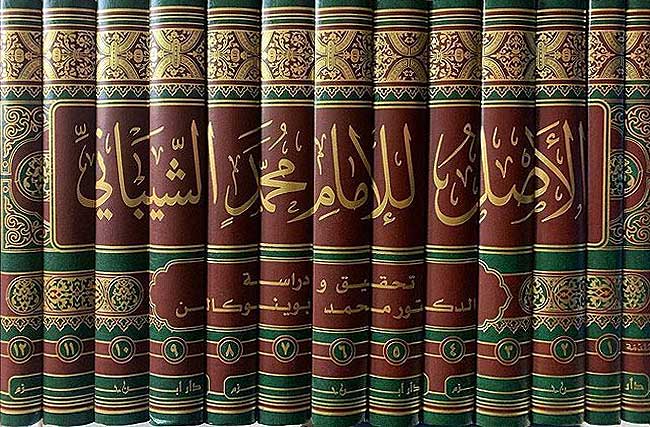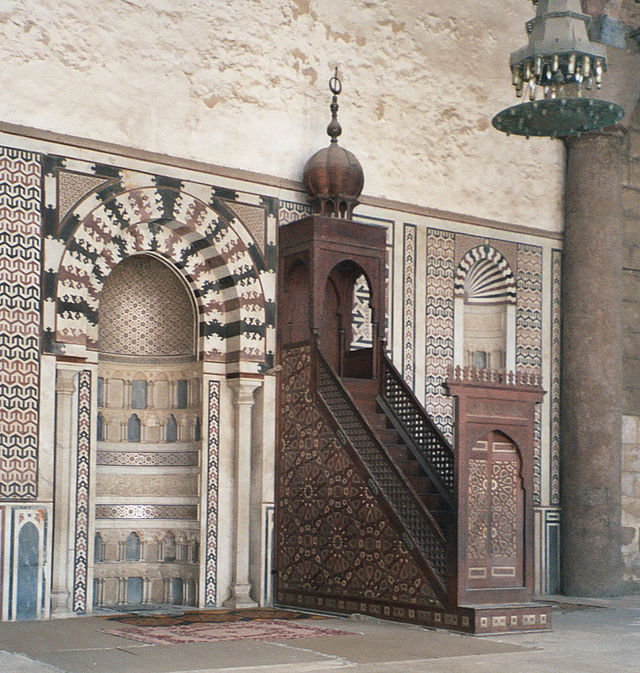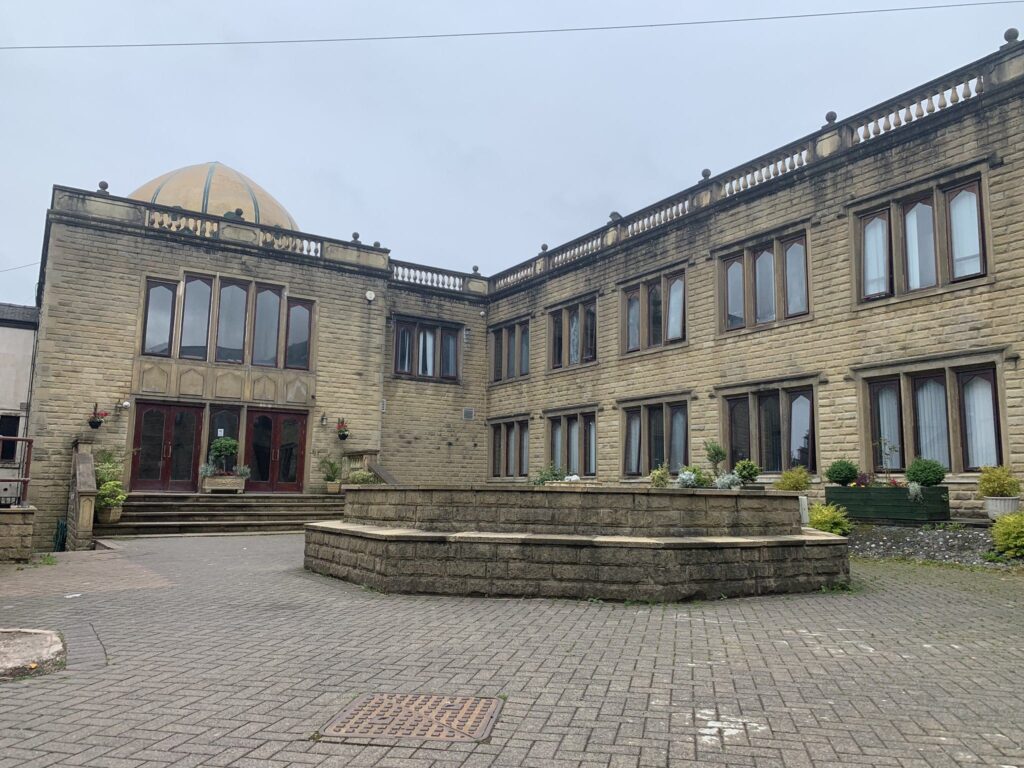Disclaimer: The intended audience for this article is pre-dominantly ulamā, students of knowledge and graduates of a Dārul Uloom (and the like). The language used is done so, with this in mind. If a non-alim is reading this and cannot understand a particular portion, please refer to the ‘ulama.
﷽
Introduction
The akābir ulamā of Deoband have always emphasised doing the khidmah of deen throughout their lives, both by word and through action. From the time of the sahābah till date, ulamā in all eras would spend their lives, health and wealth in the khidmah of the Deen, so that Islam can carry on into future generations for times to come.
If we look at the Dars-e-Nizami and the teachings of the akābir, one speciality we will notice from their teachings is that; we will find two main points that are ingrained within students throughout the 7+ years ālim/Dars-e-Nizami course in whichever [Deobandi] madrasah they study.
- To follow the Sunnah in all aspects of our daily life to the best of our ability.
- To spend our lives after graduation in the service and khidmah of the Deen.
Now the question arises, how should we do the khidmah of Deen?
Guidance from Allāh
Everything we do, be it a matter of the dunya or the ākhirah, should begin with Allāh. First and foremost we have to ask Allāh swt to use us in the form most beloved to him for the service of the Deen. We are required to ask Allāh for tawfiq, hidāyah and qabuliyyah, without which, all our efforts are naught.
Due to over reliance on ourselves, we tend to look at our own اسباب (means) and our own capabilities when making a decision, as opposed to relying on Allāh swt, the One who should be relied on. As a result, we try to conjure up different methods of Khidmah with our deficient intellects and knowledge of effective methodologies, trying to assume what would be best for the Ummah.
Instead, the step we need to take is that we speak to Allāh daily and ask with sincerity of the heart, “What khidmah of the deen should I do?”
This is more befitting for the nafs and a greater display of humility in front of Allāh.
Thereafter we should often recite the du’ā of istikhāra before commencing.
Spiritual Guidance
If we research the lives of our akābir, we will see that the majority [if not all] of them had a Shaykh whom they would consult for spiritual guidance. They would keep a close relationship with them for the rectification of their soul.
Ml Ashraf Ali Thānwi, Ml Rasheed Ahmad Gangohi and Ml Qasim Nanotwi etc. all would turn to Hāji Imdadullah Muhājir Makki for their islāh and irshād.
Similarly Hz Ml Zakariyya Kāndehlwi had Ml Khalil Ahmad Sahāranpuri.
And more recently, our Beloved Hz Ml Yusuf Motala sb would turn to Hz Ml Zakariyya for all his affairs of deen and dunya. (رحمهم الله)
These are only a few names mentioned, but the reality is that, from the ulamā of Deoband- the majority of the Ulamā all had mashā’ikh that they would turn to.
If the likes of these great ulamā recognised the need to not trust themselves, but rather take a spiritual guide, then we by default are required to do so.

Blessings are with the Seniors
Whilst doing the khidmah of Deen, if we do not have a Shaykh from whom we take spiritual guidance from, then at a bare minimum it is an absolute necessity that we are in constant liaison with our teachers and our seniors. Wisdom and experience are with the elders.
We should keep them up to date with anything we have done, intend to do and are doing currently. This is so that their guidance can remain with us and we do not err. In a position of responsibility, it is very easy to slip and because it is a matter of the Deen, even the ‘smallest’ slip can be detrimental.
Not only will our teachers guide us with regards to matters of concern in Fiqh but can also guide us with their hikmah and wisdom, from their own past experiences, and knowledge of similar situations they may be aware of.
“And When you have decided, then have Trust in Allāh…”
Once we have turned to Allāh in du’ā, consulted our teachers in mashwara, and decided the path to take. We should take the first step without hesitation and make a start with only the pleasure of Allāh in mind. Additionally we should be constantly refreshing our intentions and checking the state of our heart along the way.
No matter how great the task, Allāh’s help will come, and it will come in waves. The akābir, many times in their lives, experienced monstrous tasks that seemed impossible to overcome, but they begged Allāh by day and by night and as a result the help of Allāh came and great dilemmas were solved with great ease.
However, due to our spiritual infancy, and over reliance on ourselves- often we find ourselves struggling to do the khidmah of Deen when we encounter problems.
For example, when we need to raise money, our minds immediately turn towards solutions and money raising projects, arrogantly and mistakenly assuming, that through an effort of our own, we will succeed. Indeed our reliance first and foremost is on Allāh. We first ask Allāh and beg, thereafter we commit.
What Should I Do?
At times, we may undergo difficulty in deciding what Khidmah we should go into.
This is relative to different communities and areas, and in many cases, it is not a one-size-fits matter. According to the locality you find yourself in, judging the level of Deen in the community you would have to act accordingly.
Some areas may require a Masjid to be built, and some areas may suffice with weekly classes, nevertheless, below are a few types of Khidmah of Deen we can do.
- Establishing Masājid
- The facilitation of halal meat/certification for the Muslim community.
- Establishment of Muslim Schools (boys / girls)
- Establishment of Madaris (for ālim classes)
- Da’wah and Tabligh
- Establishment and/or enhancing the Maktab system.
- Classes for the public (Aqeedah, Tafsir, Hadith, Fiqh, Sirah etc.)
- Establishing a Darul Iftā for Questions and Answers
- Delivering bayans, spiritual gatherings and Islamic lectures.
- Refuting misguidance and purifying Islam from false beliefs
(Note: The above is a non-exhaustive list and there are many more types of Khidmah we can do. It is also set in order of priority to some degree, assuming the locality to be an area where the community is at an absolute decline in terms of their Deen.)

Fiqh and Rulings
Whilst doing the Khidmah of Deen, it is also important as ‘ulama to know the fiqhi rulings and intricacies related to what you wish to do. For example, if you were to establish a masjid, it is necessary to know the rules of the Masjid, rulings of Waqf, Money handling; what is and isn’t permissible etc.
This can be achieved through consulting seniors and those with experience in said field. This way, we would learn from their mistakes and ensure they are not repeated.
By reading the biographies and learning from the lives of the akābir we can also gain a good understanding of how they implemented fiqh, hikmah, and their taqwa whilst involved in Khidmah.
Major Projects
If the opportunity arises, and we find ourselves in a situation where we are taking on a large-scale project where major money is involved such as, building a masjid/madrasah – there are a few points to have in mind before commencing.
- Teamwork: Major and complex projects cannot be executed successfully without having a team of like-minded individuals around you to assist and have tasks delegated to them. It is close to impossible for an individual to take charge and see a project through to the finishing line, on his own without any external assistance. Having senior team members by your side who can effectively carry out tasks delegated to them is a must.
- Leadership – Project management is a field which requires great experience, skill, and expertise. It is not a simple matter of “I know how to give orders”, sometimes it’s also about knowing when not to give orders.
As difficult as it may be, if you find yourself incapable or lacking the necessary skills to manage a project effectively, it would be better to pass on the reins to somebody else who may be more experienced, more senior and would perhaps do a better job. The reason for this is because dealing with the funds of the Muslim public is an amānah and a responsibility, not a chance to gain fame and notoriety. The avoidable errors we make when handling the trusts given to us will make us answerable in the court of Allāh.
How many Masājid have lost great amounts of money, wasted, due to the ego? Due to the refusal to understand that the deen is greater than any man and that we all possess deficiencies.
- Homework – Before we go into anything, it is important to have prior knowledge on the subject or to frequently consult the people of knowledge in that regard. This could be something as small as asking a carpenter/joiner regarding woodworking needs, or something as big as consulting lawyers and architects regarding property legislation.
When it comes to matters of building and infrastructure, there are many legislations, guidelines and criteria put in place by the local authorities. When buying or building a premises, it is necessary to understand the ins and outs of everything before we carelessly throw public money at a landlord.
Sadly, many organisations have lost great amounts of money and are put into difficulty due to either not reading contracts properly, not being aware of planning permissions prior to buying land and/or simply being naïve when it comes to structural integrity and work required.
These are great errors which can be avoided by simply lowering our egos and doing mashwara with the relevant people beforehand.

Indispensible Principles
Oftentimes, during our time doing khidmah, we encounter situations and scenarios where the locality pressure ulamā to bend their principles and adopt leniency (and at times leaning towards harām).
In such a case, it is important to analyse the situation and the demands. If the request is something in which there is room to manoeuvre (within the madh’hab), then the request may be considered. However, if the request is something which is not permissible or not allowed, then it is necessary to stand firm and stick by the principles of shari’ah.
In such occasions, many ulamā fold under pressure, due to their focus shifting from pleasing Allāh alone, to pleasing the people- out of fear that they will lose a following.
(In any case, consulting teachers and seniors is necessary in all circumstances).
Doing the Work of Deen in Places of Difficulty
Alhamdulillah, due to the efforts of our akābir and the ulamā of Deoband- Ulamā have spread far and wide throughout the globe doing the work of Deen in different countries. Contrary to the UK, where we enjoy a certain level of comfort and religious standards, doing the work of Deen in countries such as, America, Canada and Australia etc. comes with its own challenges. This point itself is worthy of a dedicated article.
For da’wah to be effective in these countries, Ulama must unite and all be of the same or similar understanding, mentality and framework. This is because the work being done is foundational and the public should not be confused regarding their Islamic foundation due to the differences of ulamā.
Ulamā should aim to stick to the traditional teachings of Islam to the letter to the best of their ability and aim to work on educating the public about the fundamentals of deen.
They should also encourage the Muslim community to sacrifice their time and efforts in learning the deen.
In many of these localities, the only Islamic education children receive is an hour on Sunday in the local Islamic centre. This amount of time dedicated to Islam can never be sufficient to get the deen instilled in the heart of a single child, let alone a community of Muslims. So as ulamā it is essential that we encourage sacrifice and invest more time for the sake of Allāh and the sake of the Deen in our future generations.
Khidmah of the Layman
If you are reading this as somebody who is not an ālim but still wish to serve the Deen in your community then all the above points apply with a few additions.
- Firstly, it is necessary that you get to a good level of Islamic knowledge and action, with extra emphasis on Fiqhi rulings.
- Secondly, it is important to consult a pious God-fearing scholar regarding anything you wish to do. This is to ensure that everything is 100% in accordance with the legal guidelines of the Deen and there is no Haram involved in your Khidmah.
For example, Muslims may start a charity (or otherwise) with the intention of doing good and benefiting the Ummah, but will pay no attention to ensuring segregation, which results in open free-mixing, flirting and haram interactions taking place in the charity office.
- Thirdly, when somebody is involved in the work of deen, naturally, the community will grant them a level of responsibility and trust. When this occurs, it is important to understand your limitations as a non-ālim and know when to refer people to the ulamā.
Results are in the Hands of Allāh
Finally, we should always seek the help and assistance of Allāh in all that we do. We should also understand that results are in the hands of Allāh, and our obligation is nothing more than ensuring that we do the Khidmah of Deen with sincerity and with only the pleasure of Allāh in mind.
Is it not enough of a lesson for us, to see Nuh a.s. call his nation for 950 years, with only a handful of people accepting his message?
It is perfectly normal to feel deflated upon not seeing results, but we should motivate ourselves by understanding that many a times we may not see the results in front of us, but generations down the line, somebody may help to change the world because one person attended your talk and changed his life. When we talk about the Deen, we are spreading the message of Allāh and the message of the Prophets, and Allāh will never allow his message to go to waste- nor the reward of the one spreading it.

A Beautiful Example
If we wished to look at an individual and take inspiration from their long and perilous toil whilst serving the Deen, the best example we have in front of us is none other than our beloved, esteemed Shaykh, Hz Ml Yusuf Motalā sahib (nawwarallāhu marqadahu).
He left his comfort-zone in India and migrated to England, a foreign country, with an alien language and people. Racist attacks and anti-Muslim sentiments were high at the time. Thereafter he was instructed by his Shaykh, Hz Ml Zakariyya Kāndehlwi, to establish a Dārul Uloom where قال الله وقال الرسول would be recited.
On the top of a hill, in a village in the British countryside, in an area where there lived no Muslims- Hazrat defied all thought- when he purchased the Aitken Hospital for Tuberculosis patients for the establishment of Darul Uloom Bury.
By no logical metric would such a move succeed. With no surrounding Muslim population, no internet or social media to spread the word, and the mindset of the Muslims in the UK being such that they intended to earn money and return to their homelands, with no intention of permanent stay.
But the intention was pure, the foresight was sharp, and the du’ās of the mashā’ikh were with Hazrat. As a result, the same Allāh who ordered Ibrahim a.s. to call the adhān of Hajj in a dessert, which resulted in millions answering the call- caused thousands of Muslims from all around the globe to come and benefit from this very same Dārul Uloom.
And on this note I conclude,
May Allāh accept us all for the service of his deen and allow us all to benefit the ummah and the creation of Allāh in ways we could not possibly imagine. May Allāh grant us all Ikhlās and protect us from hasad and the evil eye.
[Maulana] Hanzala Khan
16th Rajab 1446 | 16th January 2025


Leave a Reply